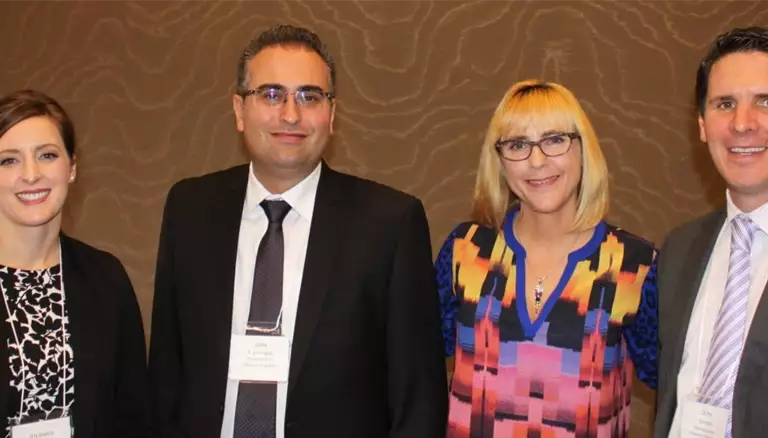
JANUARY 2017 – Peter Drucker made his presence known at CFP’s Pharmacy Forum as presenters and participants discussed the finer points of the motivational speaker’s oft-quoted term, “Culture eats strategy for lunch.” It essentially reminds us that the characteristics or “nature” of a group of people can defeat any tools or strategies for change.
“Pharmacists are cautious by nature and like to follow rules. Many also have a real fear of discipline if they step outside of their role. So they do nothing new or different,” noted Jen Baker, a panelist and co-chair of the Ontario Pharmacists Association Staff Pharmacist Caucus. Such characteristics don’t bode well for the voluntary uptake of expanded services.
“We are by nature reactive, whereas the new practice model focuses on proactive care and decision-making. One of the biggest things I heard while acquiring two pharmacies and talking to the staff was, ‘We’ve always done it this way’,” said Sean Simpson, panelist and owner of four pharmacies in the Niagara Region of Ontario. “Changing our culture could be the biggest part of changing our profession to embrace expanded services.”
“We have to come face to face with the current culture in pharmacy, where most pharmacists would rather overlook opportunity than risk getting an opportunity wrong,” summarized Zubin Austin, moderator of the event and Professor and Academic Director of the Centre for Practice Excellence, Leslie Dan Faculty of Pharmacy, University of Toronto.
The question then becomes: how do we change the culture in pharmacy? Austin and fellow presenters, as well as many in the audience, attest that it can be done. Action steps include:
Seek out those who have embraced expanded services. Promote their successes, pick up their best practices, and enlist their aid as spokespersons, mentors or trainers. “It’s really good for those who are resistant to change to see what the endpoint can look like. It helps create the desire to change, and then you can support them with tools,” said Margaret Wing, CEO of the Alberta Pharmacists’ Association.
Tap into personal passions. Invest in extra training, then take small steps: for example, start with a handful of patients where good relationships already exist.
Acknowledge pharmacists’ concerns. It can be hard to let go of dispensing and other technical duties. Map out a plan with realistic, individualized objectives and build from there. As pharmacists let go, ensure that pharmacy assistants and technicians reliably step in. “We are seeing a reticence to delegate, so it’s really important to build teams based on mutual respect and trust. Good techs and assistants are worth their weight in gold,” said Baker.
As part of its annual Changing Face of Pharmacy report, the Canadian Foundation for Pharmacy...
The federal and provincial governments have enacted a wide range of temporary laws, regulations...